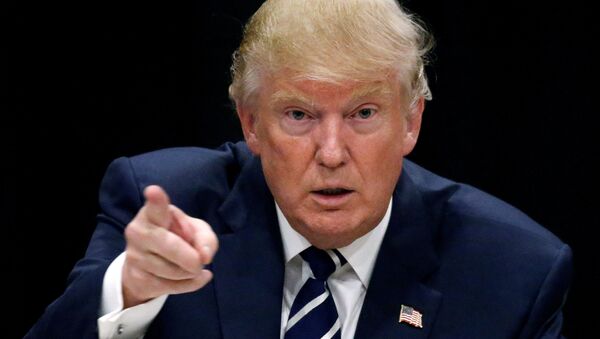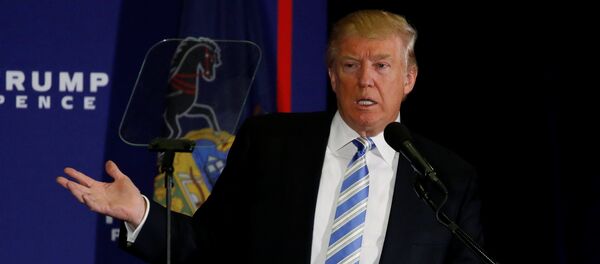"He had some interesting general policy statements, but as you know the devil is in the details. We'll have to see how he actually implements even the generalities that he talked about," Azadgan, Professor of Strategic Global Management and International Political Economy, said. "These are good signals. However, saying that 'we are going to fight [Daesh]', that's not good enough. Everybody is fighting [Daesh], even Washington's fighting [Daesh]."
The analyst urged policymakers in Washington to "change their vocabulary" when it comes to Syria, particularly the Syrian rebels.
"There is no such thing as a Syrian rebel. We've got to throw [this word combination] out of our vocabulary. There are mercenary, lunatic Wahhabis from everywhere around the world, especially Qatar, Kuwait, Saudi Arabia and the Gulf countries. They are neither Syrian, nor rebels. They are terrorists and savages."
Trump appears to have questioned the concept last week when he said that "now we're backing rebels against Syria and we have no idea who these people are."
Azadgan expressed concern that Washington was not ready to listen to other countries with regard to resolving the Syrian crisis.
The analyst was referring to an attack on a UN humanitarian aid convoy in mid-September, a week after a ceasefire brokered by Russian and American diplomats had entered into force. The incident took place near Aleppo, with the US swiftly blaming Moscow and Damascus. The Russian Defense Ministry provided detailed information disproving these allegations.
The analyst further compared the present-day situation with regard to Syria to Serbia a century ago, saying that we are at a dangerous stage when global powers have taken different sides in a local conflict, which could have global implications.
Trump's apparent willingness to limit to an extent Washington's engagement overseas is a good sign.
"If you have cooler heads in Washington, if you have people expressing slight forms of isolationism, this is good for world peace. More importantly this is good for American taxpayers who have seen their taxes being plundered in the Middle East by policymakers, who are illiterate, imperialistic and hegemonic."




